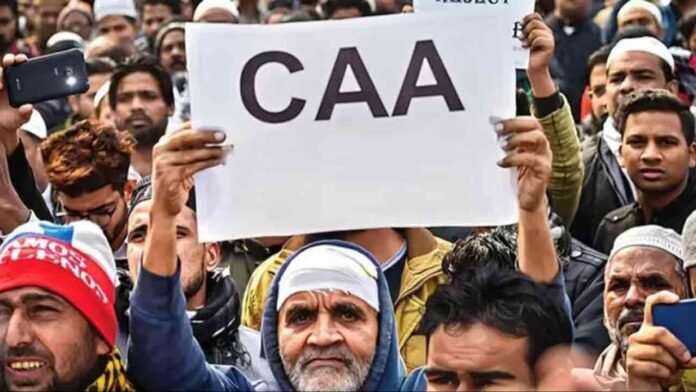The government of India has initiated the process of granting citizenship certificates under the Citizenship Amendment Act (CAA) in West Bengal, a move that has reignited intense political and social debate across the state and the nation. The CAA, which was passed by the Indian Parliament in December 2019, aims to provide a pathway to Indian citizenship for non-Muslim immigrants from Pakistan, Bangladesh, and Afghanistan who entered India before December 31, 2014.
In recent weeks, the West Bengal state government has begun distributing these citizenship certificates to eligible applicants, a step that has significant implications for the state’s demographic and political landscape. The rollout has been met with mixed reactions, reflecting the deep divisions over the CAA’s perceived intent and impact.
Proponents of the CAA argue that the act provides much-needed relief to persecuted minorities in neighboring countries. They contend that Hindus, Sikhs, Buddhists, Jains, Parsis, and Christians facing religious persecution in Pakistan, Bangladesh, and Afghanistan deserve a safe haven and a chance to rebuild their lives in India. For these supporters, the granting of citizenship certificates is a fulfillment of a moral obligation to protect vulnerable populations. They believe that this process will also help regularize the status of long-term residents who have been living in a state of limbo, unable to access basic rights and services due to their undocumented status.
The ruling Bharatiya Janata Party (BJP) has been a vocal advocate of the CAA. In West Bengal, where the BJP has been striving to expand its political influence, the distribution of citizenship certificates is seen as a strategic move to solidify its support among Hindu refugees and other eligible minorities. BJP leaders have been actively promoting the initiative, organizing events and outreach programs to inform potential beneficiaries about the process and assist them in applying for citizenship.
However, the CAA has also faced staunch opposition, particularly from West Bengal’s Chief Minister Mamata Banerjee and her party, the Trinamool Congress (TMC). Critics argue that the act is discriminatory as it excludes Muslims and undermines the secular principles enshrined in the Indian Constitution. They fear that the CAA, combined with the proposed National Register of Citizens (NRC), could lead to large-scale disenfranchisement of Muslims, creating divisions and unrest.
Mamata Banerjee has been one of the most vocal opponents of the CAA, branding it as an unconstitutional and divisive law. She has pledged not to implement the CAA in West Bengal and has accused the BJP of using the issue to polarize voters along religious lines. The TMC has organized protests and rallies against the act, emphasizing the need for unity and inclusion. The recent start of the citizenship certification process has intensified this political tussle, with Banerjee reiterating her commitment to opposing the act.
The implementation of the CAA in West Bengal has also raised practical concerns. The process of verifying eligibility and granting citizenship is complex and resource-intensive. Many applicants lack proper documentation, making it difficult to prove their claims. Additionally, there are fears that the process could be marred by bureaucratic inefficiencies and corruption, further complicating an already contentious issue.
Human rights organizations and civil society groups have also expressed concerns about the potential humanitarian impact of the CAA. They warn that the act could exacerbate existing tensions and lead to increased marginalization of minority communities. These groups are calling for the government to adopt a more inclusive and transparent approach to citizenship that respects human rights and adheres to the principles of equality and non-discrimination.
As the government continues to roll out the CAA in West Bengal, the state remains a microcosm of the broader national debate. The granting of citizenship certificates under the CAA is not just an administrative process but a deeply political act that touches on questions of identity, belonging, and the future of India’s secular democracy. The coming months will likely see continued political maneuvering and public debate as different stakeholders vie to shape the narrative and outcomes of this contentious issue.

